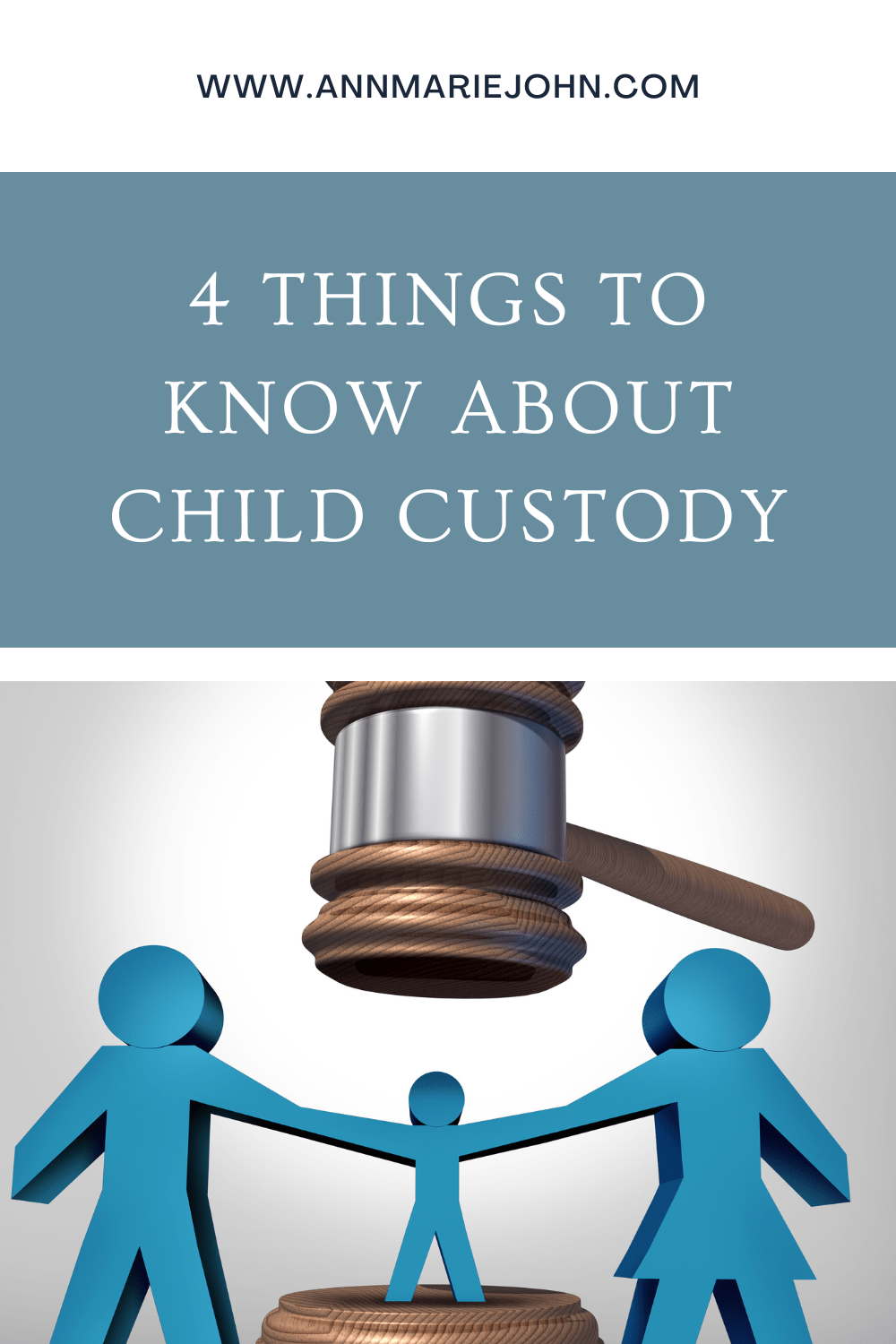When two people get divorced, one of the most difficult things they have to deal with is child custody. It’s not only about legal rights and obligations, but also about practical things like where the children will go to school, what religion they’ll be raised with, who their friends will be, and how much time each parent will get to spend with them.

The process of child custody can be complicated and emotional, but by understanding four key things, it can be made a little bit easier.

1. Cooperation Is important
Even though divorcing your spouse can sometimes make it hard to keep things pleasant between the two of you, there’s nothing quite as important as cooperation when it comes to child custody. As Charles Ullman, an experienced family lawyer, puts it, while it is hard to find a solution that corresponds with the needs of all parties involved – both the parents and the children – this isn’t an impossible thing to do, and it’s the best way to ensure the children will have a smooth transition.
Cooperation between parents is key to maintaining a good relationship with your children post-divorce. Discuss how the child will live with, transportation, and other important matters. You will also need to cooperate with the other parent when it comes to making decisions about the child’s welfare. While it’s natural for parents not to want to live away from their kids, you should take other factors into consideration as well – predominantly which option will allow them to live their lives as undisturbed by the divorce as possible. If the children are old enough, it’s also a good idea to ask them what they think would be best for them, and take that into consideration when making the decision as well.
2. Physical VS Legal Custody
One of the first things you need to understand about child custody is that there are two types – physical and legal. Physical custody refers to who the child lives with, while legal custody refers to who has the right to make decisions about the child’s welfare. This includes, but is not limited to, decisions about healthcare, education, and religion.
In most cases, parents will share legal custody, while only one parent will have physical custody, with the other parent having visitation rights. However, it is also possible for one parent to have sole legal custody of the child – this is mostly in cases where the other parent is either deemed unfit or has given up their parental rights. A somewhat common agreement would be that the children live with one parent most of the time while staying over at the other parent’s home every other weekend.
However, the agreement can be anything you and your ex-partner decide on, as long as it is beneficial for the children. It’s also important to note that in a lot of places, once a child reaches a certain age, they can autonomy decide which parent they want to live with regardless of the agreement the parents had with each other.
3. Handling Emotions
Divorce is never an easy process, and it’s often even harder when children are involved. As if the stress of the divorce itself wasn’t enough, parents now have to deal with managing their emotions in front of their kids. It’s crucial that you do your best to maintain a positive relationship with your children post-divorce, and that means handling your emotions in a healthy way. This doesn’t mean bottling them up or pretending everything is okay when it’s not, but rather finding a way to deal with them that doesn’t involve your children. They’re already going through enough as it is.
If you need to talk to someone, do it – whether that’s with friends, family, or a therapist – but never discuss your ex-partner in a negative light in front of the children. This can leave lasting emotional scars that can be very hard to heal. It’s also a good idea to present a united front with your ex-partner when talking to your children about the divorce – most notably about the fact that you both still love them as much as ever, and that they bear no responsibility for the divorce. By giving them a strong sense of security, you’ll help them through this difficult time.
4. Changing The Child Custody Agreement
Finally, if you’re unable to come to a satisfactory custody agreement, or if you believe that the situation has substantially changed since you made it and want to reach a new one – this is entirely possible to do. Again, the best way to approach this is to discuss things with your ex-partner, but if they’re being uncooperative, you can take the matter to court.
When evaluating who the children should live with, the court takes several factors into account, including the parent’s relationship with the children, the parent’s income, physical and emotional wellbeing, the home environment, and the parent’s caretaking capability. If you believe your ex-partner is lacking in any or all of these areas, you have a good chance of having the custody agreement changed in your favor.

In Conclusion
While child custody can be a complicated process, it’s important to remember that at the end of the day, what matters most is what’s best for the children. If you’re feeling overwhelmed, don’t hesitate to seek help from professionals or other parents who have gone through a similar situation. With time and patience, you’ll be able to work out an arrangement that’s best for your family.
